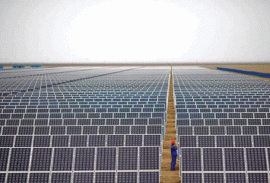
The federal government has missed yet another annual benchmark – this time it’s the inflation rate. It overshot the target and clocked in at 8.6% in the outgoing fiscal year.
This was caused by a combination of increased general sales tax rate, a reduction in power subsidies and higher food prices.
The figures released by the Pakistan Bureau of Statistics on Tuesday showed that the inflation measured by the Consumer Price Index hit 8.62% during fiscal year 2013-14 against the conservative target of 8%. It was the second key indicator that the government missed. It failed to achieve the two-time downward revised tax target of Rs2.275 trillion.
The government has also missed targets for annual economic growth, investment and savings, underscoring the fact that the economy remains fragile.
“The present trend of inflation has a combined impact of the increase in general sales tax and the reduction in subsidies on fuel and electricity prices,” said the Economic Survey of Pakistan 2013-14 that gave an overview of the performance of the economy.
From the beginning of fiscal year 2013-14, the federal government had increased the GST rate by one percent to 17% which had multiplier effects. But it could not increase tax revenues and failed to collect Parliament’s approved annual tax target of Rs2.475 trillion. It also increased electricity and gas prices by over 40%.
The economic survey further added that there were many factors behind the increase in inflation, including food prices that were an important stimulant driving the overall inflation.
The uptick in inflation will increase the chances of a further rise in the policy rate, which the State Bank of Pakistan had left unchanged at 10% in its last monetary policy announcement.
Earlier, the SBP had twice upward adjusted the key policy rate, according to its agreement with the International Monetary Fund (IMF).
According to a latest handout from the IMF, the policy interest rate should be set to bring inflation down over time. It added revised legislation to enhance the central bank’s autonomy which will be an important component for an improved monetary policy framework with greater transparency in monetary policy decision making and enhanced central bank internal controls.
The Pakistan Bureau of Statistics data showed that the non-food, non-energy inflation, known as core inflation, in June remained at 8.7%. The economic survey blamed government borrowing as one of the key factors influencing the trend of core inflation.
On a yearly basis, prices in the commodity group of housing, water, electricity, gas and fuels increased to 9.2% in June over the comparative period last year, according to the bureau. The inflation rate for the group of clothing and footwear stood at 11% in June from a year ago.
For the new fiscal year, the government has set the inflation target at 8% as any significant curtailment is not possible due to rationalisation of subsidies, monetary overhang and rising demand, according to the annual plan for 2014-15.
In the economic survey, the government admitted that a very high level of inflation would be harmful for the economy.
Published in The Express Tribune, July 2nd, 2014.
Like Business on Facebook, follow @TribuneBiz on Twitter to stay informed and join in the conversation.
COMMENTS (2)
Comments are moderated and generally will be posted if they are on-topic and not abusive.
For more information, please see our Comments FAQ







1736402259-0/sidra--(47)1736402259-0-270x192.webp)



1736332856-0/Untitled-design-(20)1736332856-0-270x192.webp)



1736334465-0/sidra--(45)1736334465-0-270x192.webp)







What a joke, a completely misleading title and downright biased article. Oh yeah and this "free" media won't approve this comment either. Oh well too bad I guess. The inflation rate target was 8.5% and the tax target was reduced to Rs. 2.25 trillion and was missed by Rs. 50 billion. As for the growth rate - yes we missed a target but got the highest growth rate in 8 years and you're still complaining. That's "free" media for you.
Roshan Pakistan for you.
Failed Govt of PMLN shows failure in all departments; however, they lie with straight face that the country is "moving forward" and "hamay kaam karne do".